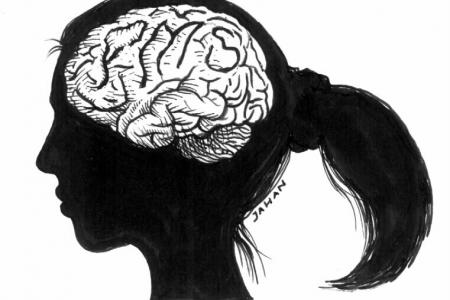Chinese woman, 24, discovers she was missing part of her brain all her life
It was only at the age of 24 that a woman from China found out that she was always missing a part of her brain.
And yet, despite a few setbacks, the young woman had been able to lead a pretty normal life.
She only found out after checking into the Chinese PLA General Hospital of Jinan Military Area Command in Shandong Province, after suffering from an episode of dizziness and nausea.
She informed the doctors that she had problems walking all her life. Her mother said that she only started walking after the age of seven and that she could only talk properly after the age of six.
After going through a CAT scan, they found out that where her cerebellum was supposed to be, cerebrospinal fluid was present. The fluid acts as a form of cushion and protects her from diseases.
The cerebellum, sometimes known as the "little brain", represents about 10 per cent of the brain's total volume but contains 50 per cent of its neurons.

A hole at the back (top) where the cerebellum should be. Photos: Top image - Feng Yu et al. Bottom image - Zephyr/Science Photo Library
It may sound like a rare situation, but the woman shares the same story as eight other people who have lived their entire lives without that entire part of the brain.
Not much has been researched about the condition as usually people who have the disorder die at a young age and it is only discovered during autopsies.
Although the cerebellum's purpose is to control voluntary movement, balance, motor skills and speech, the young woman suffers only a minor fraction of each of the problems, which highlights just how extraordinary the brain is for adapting without its full strength.
"These rare cases are interesting to understand how the brain circuitry works and compensates for missing parts," says Mario Manto, who researches cerebellar disorders at the Free University of Brussels in Belgium.
The patient's doctors suggest that normal cerebellar function may have been taken over by the cortex.
Source: New Scientist
Get The New Paper on your phone with the free TNP app. Download from the Apple App Store or Google Play Store now


